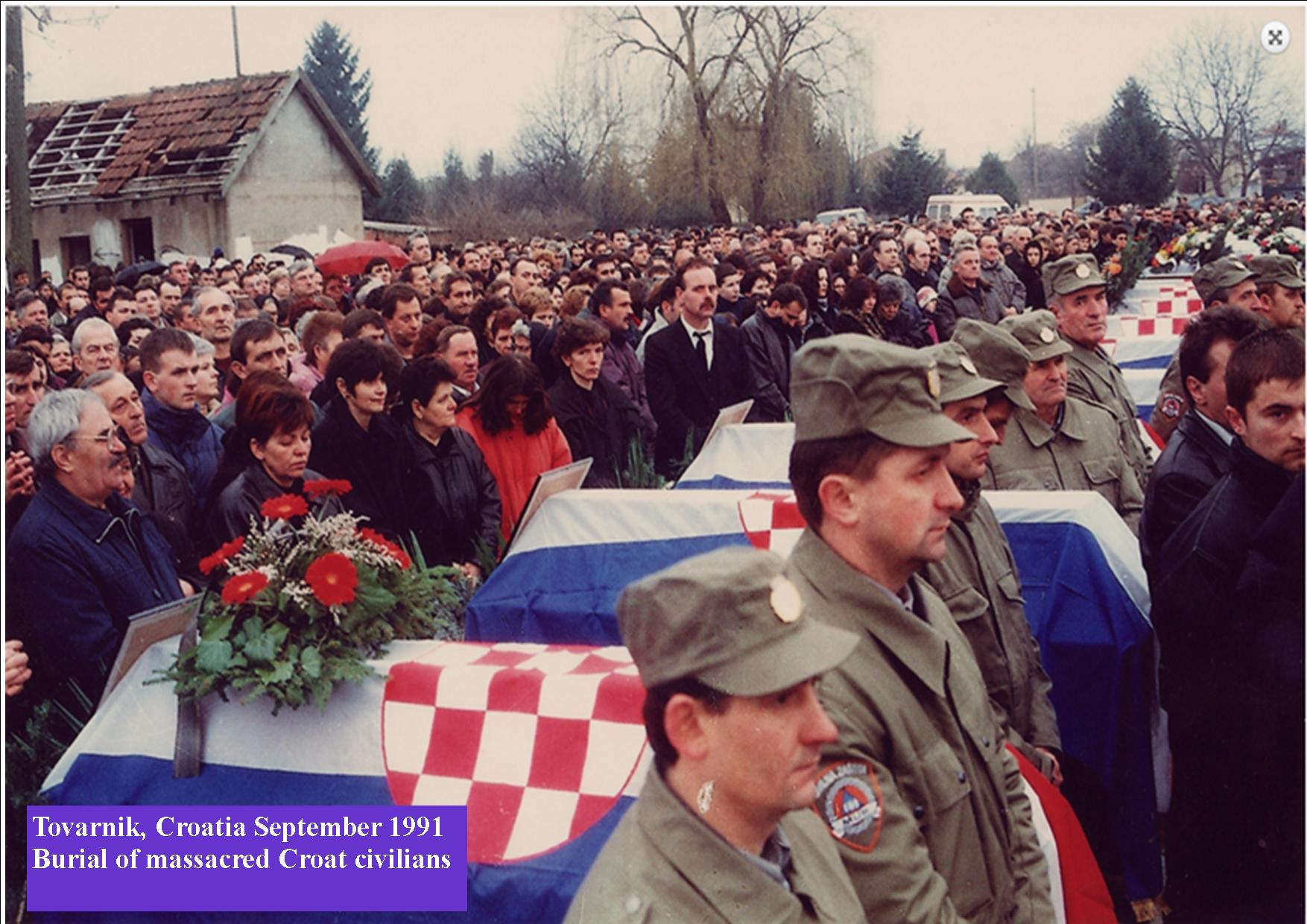There are those who could be forgiven for thinking that this is mid-1991 and not the beginning of 2017. However, much like the start of the last decade of the 20th century, Serbia has once again declared war on Croatia, writes Branko Miletic.
However, this war is not like the one from the 90s – this is an ‘omni-directional asymmetric’ war – where a weaker power (in this case, a thrice-defeated Serbia) is attacking the victor in the Balkan Wars of the 90s, (i.e. NATO- supported Croatia), using unconventional tactics and strategies such as multiple simultaneous guerrilla attacks in order to spread out Croatia’s resources and prevent her from concentrating enough force in any one place to produce a decisive outcome.
Most of these tactics are being played out in the media, using the weaponry of culture, religion, and of course, history.
Take some of the latest skirmishes for example.
Just days prior to the Orthodox Christmas, Vladimir Božović, the official representative of current Serbian Prime Minister Alexander Vučić in a meeting with the Serb minority in Croatia channelled Slobodan Milosevic saying that “we will do everything in our power to protect you.”
The question that goes begging of course is what does the Serbian minority of Croatia need ‘protecting’ from?
The answer is of course nothing, but the other question is in what other so-called civilised country would something like this be even imagined, let alone actually possible?
However this is just one small salvo in what is fast becoming a not-so-Cold War between the two countries.
But Serbia and its politicians are not alone in this conflict. They have an entire cohort of allies inside Croatia itself.
The first is the army of Fifth Columnists, where one can quite literally pick the names from a hat.
Starting at the top with Croatian Prime Minister and HDZ chief Andrej Plenkovic and working your way down to some of his coalition partners in the Most Party such as it’s leader Bozo Petrov, you can also add his Most colleague and current Croatian Interior Minister Vlaho Orepic.
Then there is the UDBA Old Guard that ably constitutes the second wave of traitors within the Sabor.
These include the likes of former Prime Ministers Stipe Mesic and Jadranka Kosor along with one-time President of Croatia, Ivo Josipovic, all of whom have kept their old contacts in Belgrade alive and well, presumably for the purposes of profiteering.
Of course, no war is complete without the involvement of the media, and since the first casualty of war is the truth, then the hero of the moment must be Croatia’s national broadcaster HRT.
HRT has taken anti-Croatianism and the false politics of guilt to levels never seen in the 26 years since the election of Franjo Tudjman as Croatia’s first president and as such, if medals for treachery were being given out, HRT and its management would be some of its first recipients.
Finally, to round of this pantheon of parasites is the leadership of the Serb National Council in Croatia, especially its’ president Milorad Pupovac.
Pupovac, an unapologetic chetnik cheerleader, has been the face of this war against Croatia for some time now, with his main roles being that of instigator, media baiter and cultural bomb-thrower.
His latest offensive is to trying to force the University of Zagreb to set up a ‘Serbian Culture & History’ faculty, with the implication being that if it refuses, it must be because of some inherent ‘Ustashi influence’ at the university.
Now with the Republic of Serbia’s entry onto the frontlines of this war, the stakes for Croatia have become a lot higher.
The first prize in this omni-directional asymmetric conflict is the political leadership of the Balkan region and quite possibly, territorial expansion in Bosnia and Herzegovina.
The second prize is culture longevity and the assurance of the continuation of freedom and independence for the countries involved.
If only those in power in the Republic of Croatia would realise that this war is there’s to lose.
